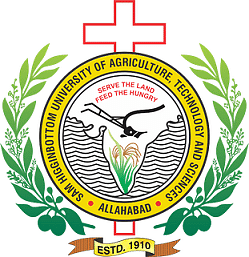Navigating the World with a BSc in
Sociology: Understanding Society One Step at a Time
In a world that is constantly evolving and changing, the need to understand
human behavior and societal dynamics has never been more critical. B.Sc in Sociology offers a profound insight into the intricate web of social
relationships, institutions, and structures that shape our lives. This blog
delves into the essence of a BSc in Sociology, its relevance in today's world,
career prospects, and the skills students can gain from this intriguing field
of study.
What is
Sociology?
Sociology is the scientific study of society, social relationships, and the
institutions that bind individuals together. It seeks to understand how social
forces influence human behavior, how individuals interact within a society, and
how societies change over time. By examining patterns of social interactions,
sociologists aim to uncover the underlying causes of social phenomena and
address societal issues.
Why Pursue
a BSc in Sociology?
A BSc in Sociology provides a robust foundation in understanding social
dynamics and equips students with critical thinking and analytical skills. Here
are some compelling reasons to consider this degree:
1. Comprehensive
Understanding of Society: Sociology provides a deep understanding of
the social world. It explores various aspects of human life, including culture,
race, class, gender, education, and politics, offering students a holistic view
of societal functions.
2. Addressing
Social Issues: Sociologists play a crucial role in identifying and
addressing social problems. Whether it's poverty, inequality, crime, or
discrimination, sociologists use their knowledge to develop solutions and
promote social change.
3. Diverse
Career Opportunities: A degree in sociology from top college Haryana opens doors to various career paths. Graduates can pursue roles in
social services, education, research, public policy, human resources, and more.
4. Skill
Development: Students develop essential skills such as critical
thinking, research, data analysis, and effective communication. These skills
are highly valued in numerous professions.
The
Curriculum: What to Expect
A top BSc college in Sociology typically covers a broad range of
topics. Here are some core areas of study:
1. Introduction
to Sociology: This foundational course introduces students to key
concepts, theories, and methods in sociology.
2. Research
Methods: Students learn qualitative and quantitative research
techniques, including surveys, interviews, and statistical analysis.
3. Social
Theory: This course covers classical and contemporary sociological
theories that explain social phenomena.
4. Sociology
of Family: An exploration of family structures, dynamics, and their
impact on society.
5. Criminology:
The study of crime, its causes, and societal responses to it.
6. Gender
and Society: An examination of gender roles, identities, and
inequalities.
7. Race
and Ethnicity: Understanding racial and ethnic diversity, prejudice,
and discrimination.
8. Sociology
of Education: Analyzing the role of education in society and its
impact on individuals.
9. Urban
Sociology: Studying life in urban environments and the challenges
faced by cities.
10. Globalization:
Exploring the social, economic, and political effects of globalization.
Skills
Acquired Through a BSc in Sociology
A BSc in Sociology equips students with a versatile skill set that is
applicable in various fields. Some of these skills include:
1. Analytical
Thinking: The ability to analyze complex social issues and interpret
data.
2. Research
Proficiency: Expertise in conducting and designing research projects.
3. Communication
Skills: Effective written and verbal communication, essential for
presenting findings and arguments.
4. Critical
Thinking: Evaluating information critically and making informed
decisions.
5. Problem-Solving:
Developing solutions to social problems and challenges.
6. Interpersonal
Skills: Understanding human behavior and improving interactions with
diverse groups.
Career
Prospects for Sociology Graduates
A BSc in Sociology opens up a wide array of career opportunities in various
sectors. Here are some potential career paths:
1. Social
Services: Working as social workers, counselors, or community service
managers to support individuals and communities.
2. Education:
Teaching sociology at the secondary or post-secondary level, or working in
educational administration.
3. Research
and Policy: Conducting research for think tanks, government agencies,
or non-profit organizations to inform public policy.
4. Human
Resources: Managing employee relations, recruitment, and
organizational development.
5. Public
Health: Analyzing social factors affecting health and developing
interventions to improve public health outcomes.
6. Criminal
Justice: Working in law enforcement, corrections, or rehabilitation
services.
7. Corporate
Sector: Applying sociological insights in market research, public
relations, or corporate social responsibility initiatives.
8. Non-Profit
Organizations: Advocating for social justice and working on
initiatives to address social issues at top college in Haryana.
The
Relevance of Sociology in Today's World
In an era marked by rapid social change, globalization, and technological
advancements, the role of sociology is more relevant than ever. Sociologists
help us understand the complexities of modern society and the impact of these
changes on individuals and communities. By examining issues such as inequality,
migration, digitalization, and climate change, sociologists contribute to
creating informed policies and fostering a more equitable and inclusive
society.












